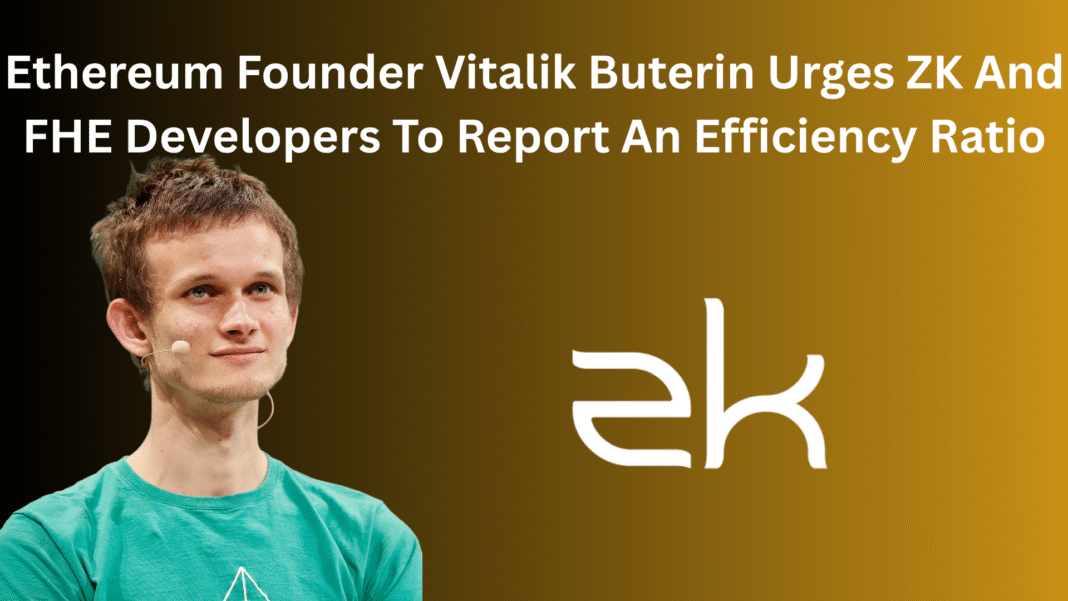Vitalik Buterin, a co-founder of Ethereum, is urging developers of zero-knowledge proofs ZK and FHE to reconsider their performance metrics. Many developers now concentrate on “operations per second,” but according to Vitalik, that doesn’t provide the whole picture.
Instead, he recommends utilising an efficiency ratio, which illustrates how much slower a calculation becomes when encrypted as opposed to when it is conducted properly.
Vitalik’s advice
He said he wished more ZK and FHE people would report their overhead as a ratio, time to compute under cryptography versus time to compute raw, instead of only saying they can do N ops per second.
This was more hardware-independent and gave a clear measure of how much efficiency is being sacrificed by making an app cryptographic rather than trust-dependent.
He added that the ratio is often better for estimation since a developer usually already knows raw computation time and can simply multiply, and acknowledged the difficulty because ops are heterogeneous between execution and proving.
Especially, around SIMD, parallelisation and memory access patterns, so the ratio remains somewhat hardware dependent, but maintains that the overhead factor is still a useful number despite those imperfections.
Industry reaction
Wei Dai, a cryptocurrency specialist, agreed with Vitalik and referred to this statistic as kappa. Kappa illustrates the additional time required to cryptographically prove a computation as opposed to performing it conventionally.
According to Vitalik’s prediction, encryption would add relatively minimal cost because many calculations in the future may have a single-digit kappa.
According to him, some processes, like Poseidon hashing, are already incredibly effective, which is crucial for cryptography that is immune to quantum errors.
Lukas Helminger, a cryptocurrency user, joined the conversation and inquired about how to assess FHE overhead for blockchain use cases, where performance may be impacted by the network and participant count.
Vitalik said that while FHE is mostly single-party, the network is only important for delivering inputs and doing threshold decryption. According to Lukas, blockchain applications must assume a minimal number of nodes because big networks may create lag.
Vitalik went on to say that raw runtime is better for practical estimations, while bandwidth and network delay should be used to gauge threshold decryption.
Why is this important?
Industry leaders like Vitalik and his comments play a very significant role when it comes to the developers. Suggestions like these are what make any chain or protocol better. How the concerned developers take up the advice and react to it is still to be seen.
Also Read: Ethereum Co-Founder Vitalik Calls for Open, Verifiable Systems in Health and Finance


